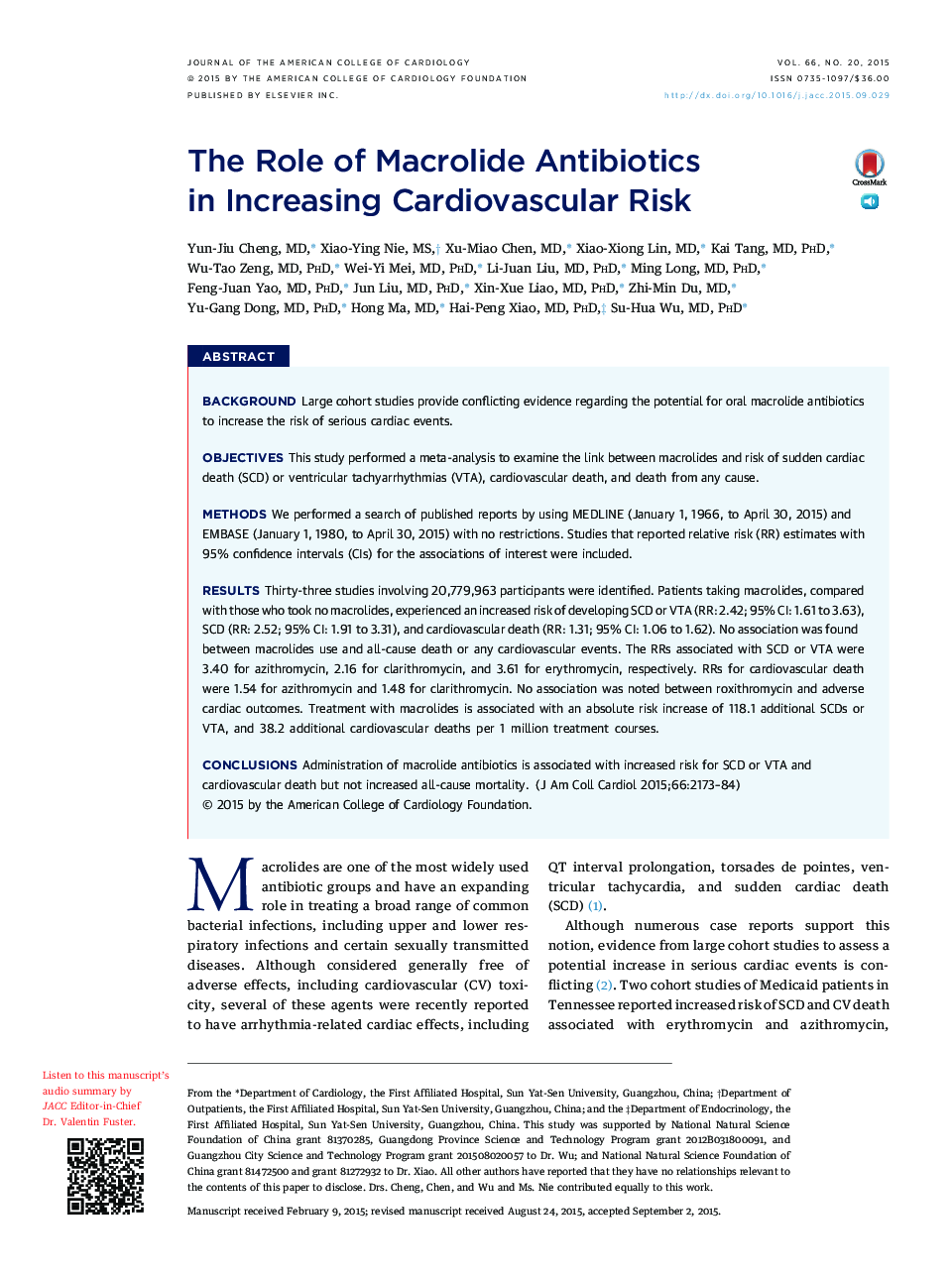| Article ID | Journal | Published Year | Pages | File Type |
|---|---|---|---|---|
| 5982178 | Journal of the American College of Cardiology | 2015 | 12 Pages |
BackgroundLarge cohort studies provide conflicting evidence regarding the potential for oral macrolide antibiotics to increase the risk of serious cardiac events.ObjectivesThis study performed a meta-analysis to examine the link between macrolides and risk of sudden cardiac death (SCD) or ventricular tachyarrhythmias (VTA), cardiovascular death, and death from any cause.MethodsWe performed a search of published reports by using MEDLINE (January 1, 1966, to April 30, 2015) and EMBASE (January 1, 1980, to April 30, 2015) with no restrictions. Studies that reported relative risk (RR) estimates with 95% confidence intervals (CIs) for the associations of interest were included.ResultsThirty-three studies involving 20,779,963 participants were identified. Patients taking macrolides, compared with those who took no macrolides, experienced an increased risk of developing SCD or VTA (RR: 2.42; 95% CI: 1.61 to 3.63), SCD (RR: 2.52; 95% CI: 1.91 to 3.31), and cardiovascular death (RR: 1.31; 95% CI: 1.06 to 1.62). No association was found between macrolides use and all-cause death or any cardiovascular events. The RRs associated with SCD or VTA were 3.40 for azithromycin, 2.16 for clarithromycin, and 3.61 for erythromycin, respectively. RRs for cardiovascular death were 1.54 for azithromycin and 1.48 for clarithromycin. No association was noted between roxithromycin and adverse cardiac outcomes. Treatment with macrolides is associated with an absolute risk increase of 118.1 additional SCDs or VTA, and 38.2 additional cardiovascular deaths per 1 million treatment courses.ConclusionsAdministration of macrolide antibiotics is associated with increased risk for SCD or VTA and cardiovascular death but not increased all-cause mortality.
